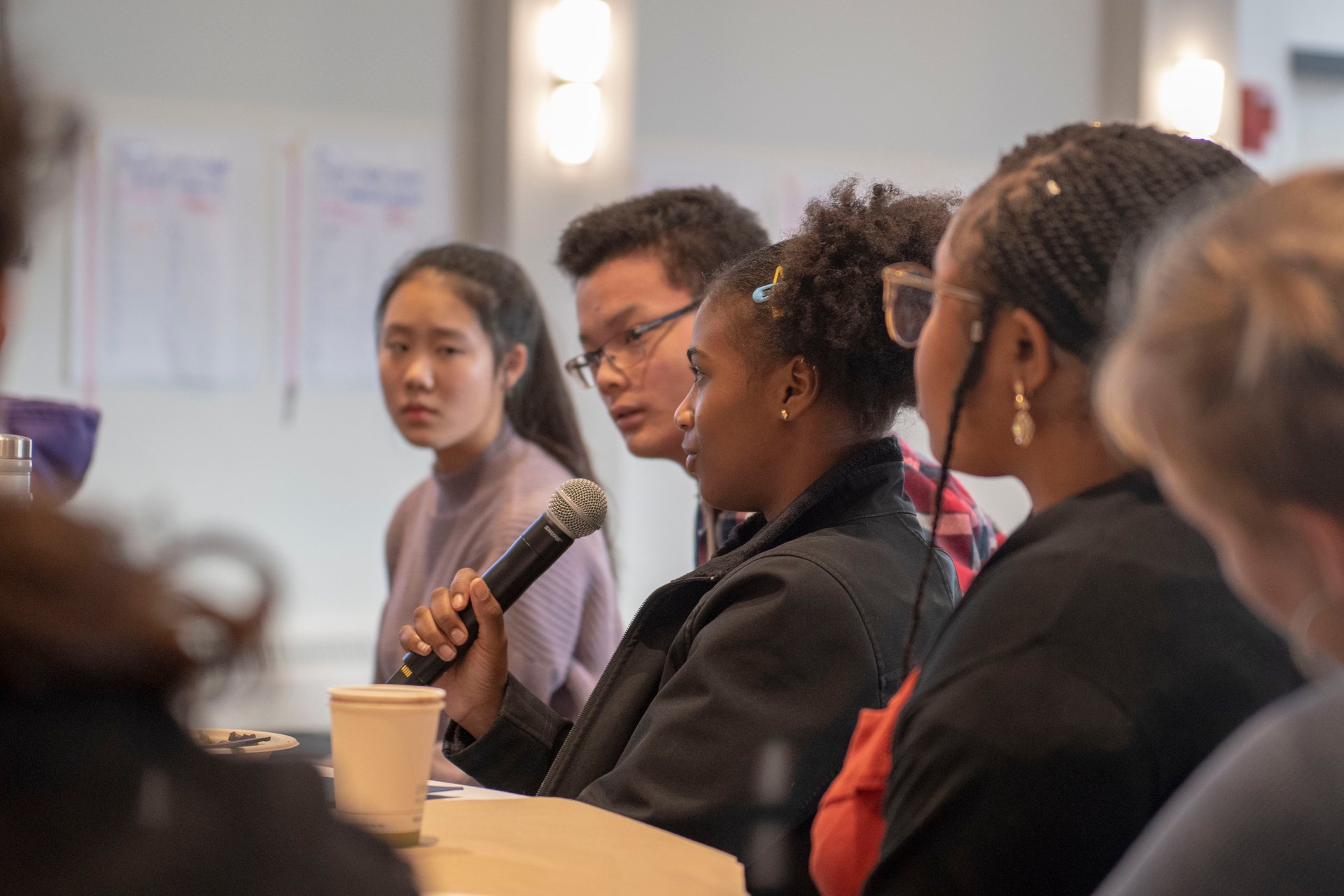Climate Cafés at Mass Audubon
To address the climate crisis, we have to get comfortable talking about the climate crisis.
And that's a challenge. In fact, according to a 2019 report by the Yale Program on Climate Change Communications, over half of Americans almost never talk about climate change with their friends or family.
But it's a challenge we can tackle, together.
The Climate Café model, used globally, is a forum for judgement-free, informal climate conversations in local communities. These conversations not only foster comfort and understanding of climate change and its local impacts, but also equip participants with the skills and confidence they need to talk about climate change with the people they care about.
The Importance of Community-Level Conversation
Research shows that a record high number of Americans understand climate change is real, happening now, and is human-caused. However, inability to or discomfort with discussing climate change can prevent both individuals and their communities from acting on climate. Mass Audubon’s Climate Cafés help combat this obstacle because:
- They localize climate change. It's easy to feel lost about how to talk about climate change when its impacts seem to only happen across the globe, and not where we are. Mass Audubon’s Climate Cafés highlight the local impacts of climate change by stimulating conversation on what we can see right in our backyards and neighborhoods.
- They show climate change is happening now. A phenomenon framed as a future problem is a phenomenon harder to describe with urgency. Mass Audubon’s Climate Cafés help participants visualize effects that we can see right now, like sea level rise or the early arrival and/or departure of migrating wildlife.
- They make climate conversation accessible. You don't need to be a member of a specific organization, work in a special profession, or get a certain degree to talk about climate change. Mass Audubon's Climate Cafés are judgement-free zones where everyone—yes, everyone—can gather in their own communities to talk about climate change and create community-based solutions together.
- They create a climate community. Talking about climate change can feel overwhelming when you feel alone. Mass Audubon's Climate Cafés provide a community for those who care about climate change and want to learn more and act. Climate change is a fight we take on together, and Climate Cafés help emphasize that no one is by themselves when it comes to climate action.
Upcoming Climate Cafes
There are currently no upcoming programs. Please check back again soon.



